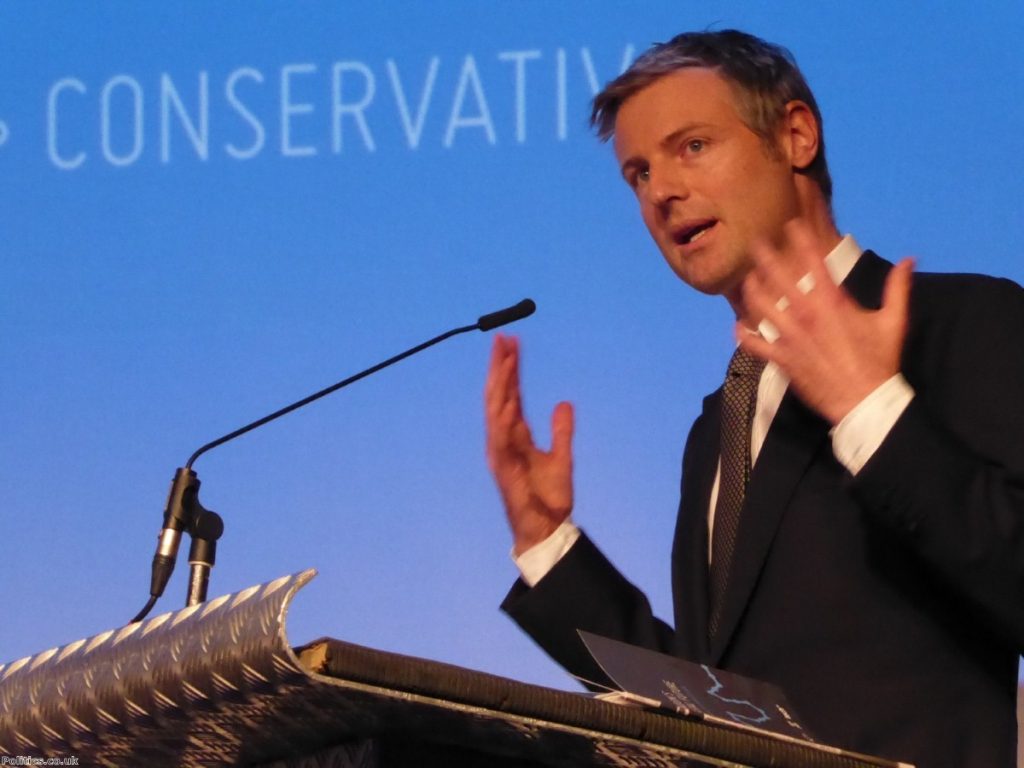Zac Goldsmith says flagship government housing policy is ‘catastrophic’ for London
Zac Goldsmith today labelled a flagship Conservative housing policy as "absolutely catastrophic" for London.
The Conservative London mayoral candidate said the decision to allow office spaces to be "automatically" turned into residential properties had destroyed local economies across London.
"The effect of that has been absolutely catastrophic in my patch, but right across London," Goldsmith told the Creative Industries Federation.
The coalition government introduced a temporary change to permitted development rights back in 2013 leading to thousands of office spaces being converted. Last year the change was made permanent following the large take-up by developers. Announcing the change last October, housing minister Brandon Lewis said the policy was "breathing new life into neighbourhoods".


However, Goldsmith said in reality the policy had turned many local areas into "dormitory zones".
"I have lost a third, now, of office spaces in Richmond borough… And the effect of that is that thriving dynamic local communities are becoming dormitory zones. If you lose the office space, then people stop working in the area and that has a knock on effect on high streets and you find that you have a spiraling down. You end up caught in a place where people live, but don't work and where the local economy simply ceases to exist."
Goldsmith also criticised the current Conservative mayor Boris Johnson's flagship scheme to help London renters, saying that it had so far failed to work.
Johnson launched a London-wide rental standard two years ago, with the aim of signing up 100,000 landlords across the city. Under the scheme, landlords voluntarily agree to sign up as accredited landlords who will conform to certain standards.
However, the latest City Hall figures show that fewer than 15,000 landlords have so far signed up. Analysis of rental adverts last year found that Boris's scheme was mentioned by just 0.2% of landlords.
"Boris Johnson's London rental standard… at the moment it is not really working," Goldsmith admitted.
"I think the reason it is not working is because it has not been properly marketed."
Goldsmith took questions from leading voices in the London creative sectors at the meeting in Soho Theatre. However, he declined to set out specific policies to help the sector, saying that he wanted his agenda to be "holistic" for all Londoners.
Creative Industries Federation chairman John Kampfner tackled him on his apparent reluctance to directly address their concerns.
"We haven't heard specific points from you about growing the resilience of the arts in London. Sadiq Khan did in the Evening Standard launch his creative and cultural industries manifesto. You haven't. The perception is you don't get the importance of the sector."
Goldsmith said that unlike Khan, he would not be releasing a specific creative manifesto as it would be "divisive".
"I won't have a separate manifesto for this any more than I will have a separate manifesto for BME which is historically what candidates always do. Or LGBT. I don't want to have a divisive manifesto. There will be a thread running through each and every issue… You will see that [my manifesto] is a holistic one."
However, he insisted that his overall policies on housing, transport and business would benefit all sectors of the London economy.
"I want to see a thousand flowers bloom," he insisted.









